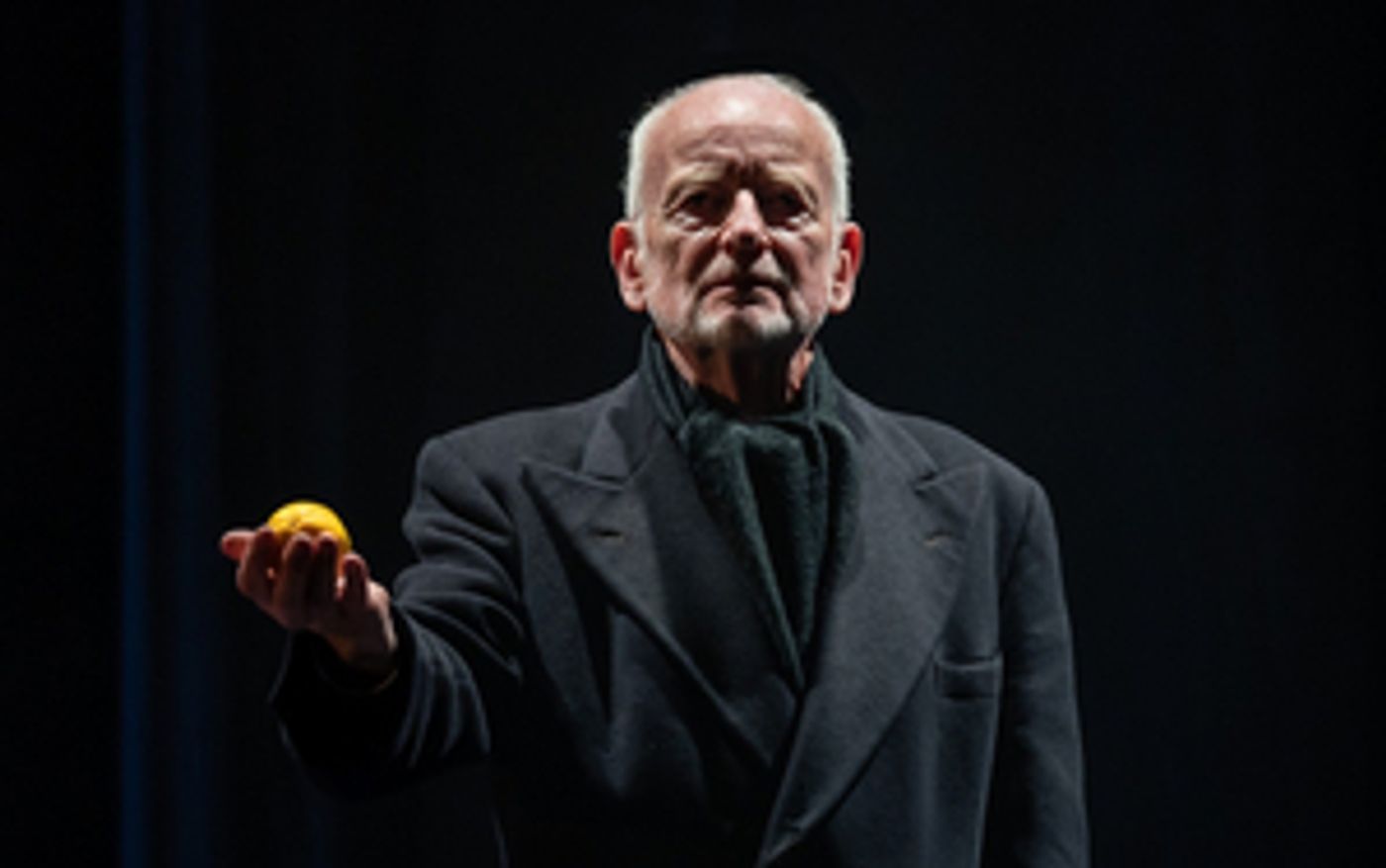Review: THE LEMON TABLE, Salisbury Playhouse
Star Wars actor Ian McDiarmid hits the high notes in this melodic must-see show

![]() When Booker Prize-winner Julian Barnes saw The Lemon Table early in its world premiere run, he gave his seal of approval to the adaptation of his short stories. A fine accolade for adaptor and star Ian McDiarmid, best known for his role as Emperor Palpatine in the Star Wars films, Olivier and Tony award-winning performances, and 12 years as the Almeida Theatre's artistic director.
When Booker Prize-winner Julian Barnes saw The Lemon Table early in its world premiere run, he gave his seal of approval to the adaptation of his short stories. A fine accolade for adaptor and star Ian McDiarmid, best known for his role as Emperor Palpatine in the Star Wars films, Olivier and Tony award-winning performances, and 12 years as the Almeida Theatre's artistic director.
Originally heading for the Edinburgh Fringe, this bittersweet new one-man show that muses on ageing and death was delayed by Covid. But, after McDiarmid teamed up with the Michael Grandage Company, it now kicks off the post-lockdown reopening of Salisbury Playhouse. A brave choice to entice audiences back, and hugely admirable at a time when many theatres are playing it safe with rehashes of older works or crowd-pleasing musicals.
However, those appreciating plays in a tuneful vein won't be disappointed. In a two-part structure (70 minutes running time, with no interval) McDiarmid admirably portrays two different characters in a simple and brilliant set designed by Frankie Bradshaw, consisting of two chairs and a curtain in Farrow and Ball greys, and a wooden table - intrinsically important to both tales.
The first half of the show, entitled Vigilance, introduces us to a fervent and misguided concert-goer, who craves silence while listening to live performances of favourite works by composers like Jean Sibelius. He can't bear coughing, sneezing or the distracting rustle of "programme turning", suggesting "they should put directions of use on the cover". From offering cough sweets ("spot fines") to strident coughers, our narrator takes more direct measures to curtail noisy concert hall neighbours, including tripping a man on the stairs and cursing all-comers. "I hope you get cancer" is the least offensive phrase he utters.
At an allegro pace and with great timing (superbly directed by maestros Michael Grandage and Titas Halder), McDiarmid's demented character gets laughs and sympathy from the audience. Haven't we all sat next to someone boisterously crackling sweet wrappers or forgetting to switch off a phone? At this point, I was aware of the swish of pages in my notebook. Ironically, someone's phone actually went off at this performance. McDiarmid joked in the post-show Q&A that he would have liked to say "Madam, you can take that call now."
There's a tonal shift in the play when our disturbance vigilante reveals that his then partner, Andrew, thought he should stay at home and listen to CDs to avoid irritating people - and stop flirting with younger men at the bar. "You listen more carefully at concerts," replies the obsessive antihero, who enjoys "the loud bit when 100 or more musicians are going full tilt" and all sense of time is abolished.
Yet the underlying frustration here isn't really irksome auditorium companions, but the loss of Andrew - also a flawed figure, with his tendency to scout for firewood while cycling and cursing bad drivers (a parallel to cursing disruptive audience members). Andrew headed up the furniture department at the V&A, and the wooden table was one of his prized pieces. Our angry music aficionado is silent on the subject of his failed relationship with Andrew - "we don't talk about that".
Part two of the diptych, The Silence, offers a study in what happens when the music ceases. Donning a long overcoat, McDiarmid plays an elderly Sibelius frightened of silence, yet he requires silence so he can compose. "Music must come from silence and return to it." Sibelius feels guilt for neglecting his wife and hates criticism of his work, so scrabbles for the bottle in the centre of the table ("alcohol is now my most faithful companion") for solace.
The lemon is the Chinese symbol for death, and Sibelius gathered round the lemon table with a group of men to discuss death and dying. However, like the neurotic concert-goer, Sibelius can't face the music. Neither man wants to apologise or atone for their actions and rage against the dying of the light.
McDiarmid inhabits both maturing characters with a wide vocal range and great physicality. He has the audience in the palm of his hand from the outset, conveying the correlation between silence and music through his own silences and speech.
He's proficiently aided by the bravura chamber performance of the creative team, including lighting designer Paule Constable's cross-spots casting shadows on the walls and a spot narrowing in on McDiarmid; and Ella Wahlstrom's reverberations and musical soundscape setting off a train of emotions.
It's apt that the play refers to conductor Bernard Haitink, who died the day of this performance. The fanatical concert-goer regards the celebrated conductor as a kind of soulmate, because Haitink didn't interfere with the music and let it speak for itself. The Lemon Table warrants the opportunity to speak to West End audiences as well as those in the regions, so let's hope it finds a space in a harmonious London theatre in the near future.
Following its run at Salisbury Playhouse, The Lemon Table tours Sheffield, Guildford, Manchester and Malvern - see dates and venues here
Photo credit: Marc Brenner
Reader Reviews
Videos

